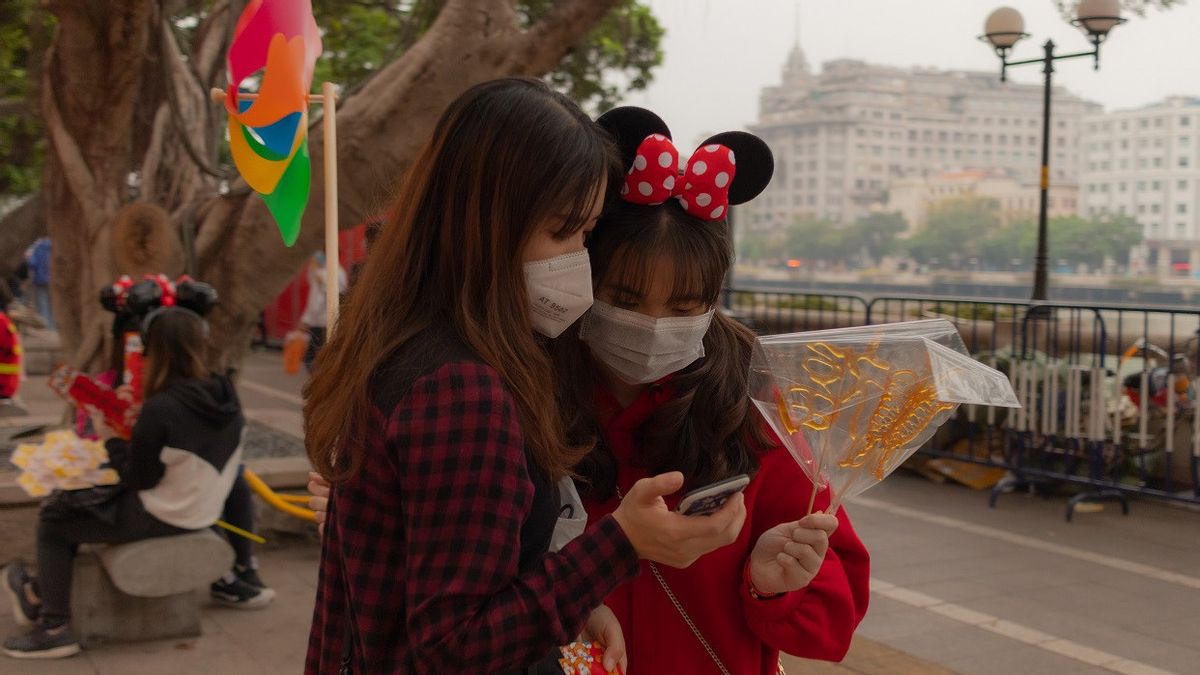JAKARTA - China's public and business are tired of welcoming the easing of zero-COVID strict measures, but Jorry Fan, who lives in the eastern city of Suzhou, said it prompted it to cancel its weeks-long meal plans.
The 44-year-old's mother aims to avoid eating indoors or crowded places instead, opting for food delivery, as she or her family is concerned she or she could catch COVID-19, after China canceled testing as a prerequisite for multiple activities.
"I'm very happy because previously I had to do nucleic acid tests almost every day, so this is more comfortable," he said.
"On the other hand, we don't know who is safe, we don't know who contracted the coronavirus. So we will be more careful," he continued.
Consumers like Fan show why analysts don't expect a rapid and extensive recovery in spending on the world's second-largest economy, as excitement that welcomes relaxation is suddenly offset by uncertainty for consumers and businesses.
In theory, it's a bright prospect for fast food players like McDonald's, Starbucks, Yum China and luxury companies like LVMH, after such measures as a lockdown weakening sales.
However, the easing is expected to deliver a wave of infections that experts say could reach 60 percent of the population of 1.4 billion, a fear that has pushed many people off the streets.
Expenditures also tend to remain hampered by persistent concerns over the security of work and the slowing economy.
Several economists have cut China's growth forecast for early next year, which is likely to continue its grim growth rate this year that has been among the worst in the last half century.
"The move from quarantine of isolation facilities to home quarantine will not significantly increase retail sales," explained Iris Pang, chief economist for China Raya in ING.
The easing is also enforced differently in various places, as some maintain restrictions imposed by others.
At Shanghai's commercial hubs, for example, people don't need negative COVID tests to enter restaurants since Friday, but the rules still apply to those in Beijing.
Despite several reports by analytic firms on spikes in domestic flight bookings and film tickets, the move comes from low bases, creating a picture of clashes with views of empty subway seats during busy hours in major cities such as Beijing and Shanghai.
Re-opened queues are more common outside pharmacies, than in malls and shops, as people stockpile antigen tests and medicines to treat symptoms of colds and flu.
A spa at a mall in downtown Beijing that resumed operations on Friday said most of the staff had returned but far fewer customers.
"Due to the outbreak, we are now using promotions and coupons to attract customers, which actually makes us lose money," said one of the massagers.
Meanwhile, many businesses have also said they made the wrong move, with an executive from a large hotel chain saying it was "completely unprepared for dramatic and drastic reopening".
"With many of its hotels still being used for quarantine purposes, it has proven difficult to persuade owners to open and hire more workers after a zero-COVID campaign fostered a conservative mindset," he told Reuters.
"The company is now adjusting its strategy, so 80 percent of the resources are focused on finalizing the'revenge' expenditure, while reserveing 20 percent of hotel and staff occupancy if quarantine returns," the executive added, without naming.
Jason Yu analyst from Kantar Worldpanel said instead of buying cosmetics, wine and liquor whose sales are likely to continue to decline, people will target goods promoting health and well-being, buying fewer instant noodles and popular frozen goods among those preparing for lockdown.
However, some analysts say that reopening, although dynamic, is a good sign in the long term for companies committed to China. Fast food brands, for example, will be able to return to the major expansion they have planned.
In 2023, China's new restaurant development will reach about half of the global opening of McDonald's units and about a third of Starbucks' new locations, said Bank of America analyst Sara Senatore.
Luca Solca, a luxury goods analyst in Bernstein, said the end of the restrictions was good news for the luxury goods industry, which relies heavily on Chinese spending.
"My basic case scenario is that easing should encourage Chinese consumers to return to enjoying life and spending money - profitable, among others, top luxury brands," he said.
The English, Chinese, Japanese, Arabic, and French versions are automatically generated by the AI. So there may still be inaccuracies in translating, please always see Indonesian as our main language. (system supported by DigitalSiber.id)













